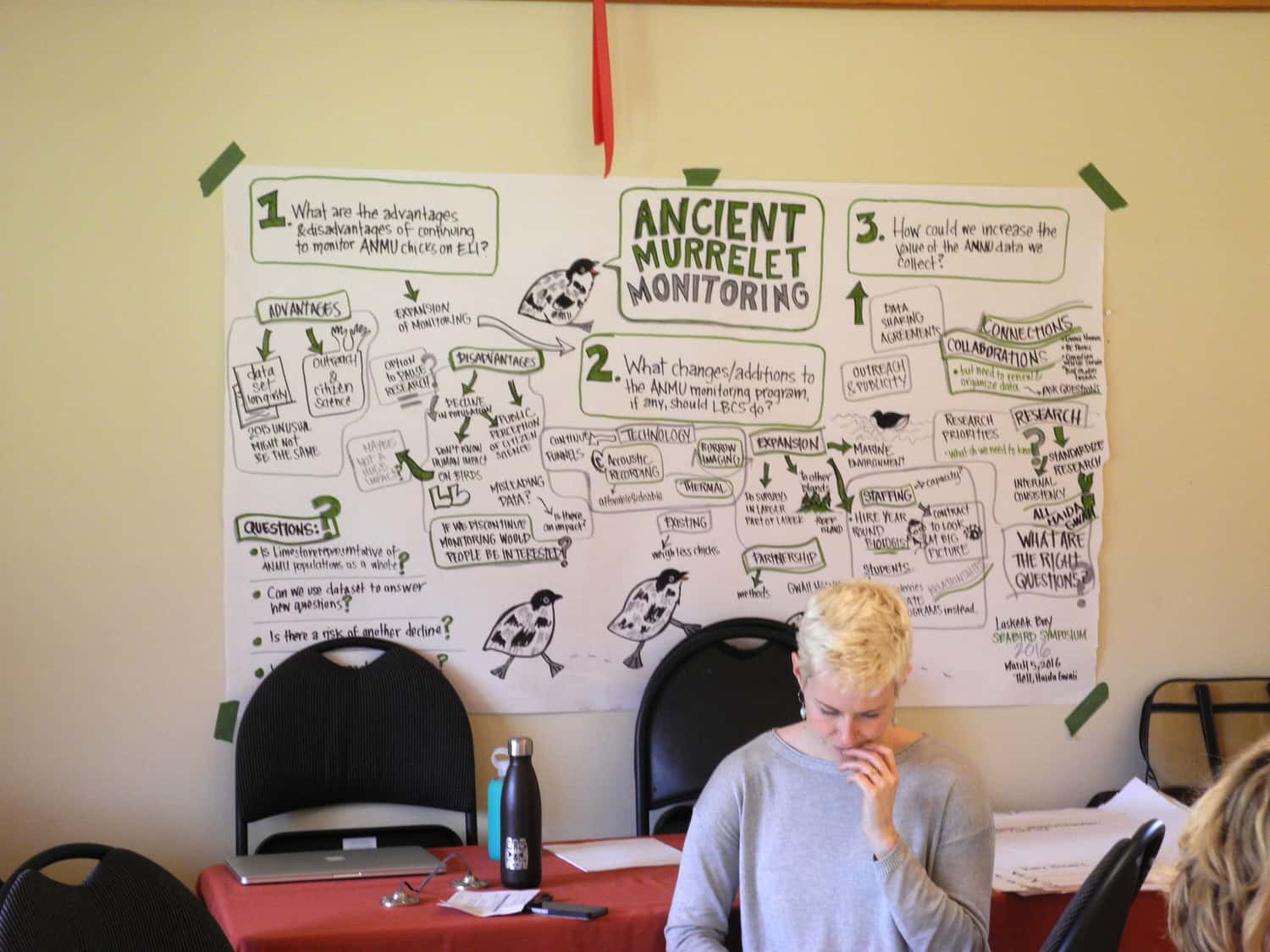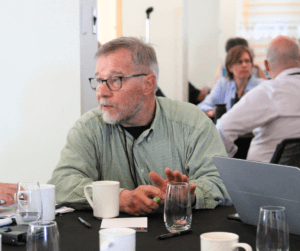Photo courtesy of Co+Host Collective
The word “Millennial” has come to mean “change” in business circles in recent years. And while discussions around these changes can result in an “intergenerational blame game,” Millennial workers and business owners are responding well to the changing times.
So, we reached out to two consulting co-operatives to see how the values Millennials hold dear — like lifestyle, collaboration, and flexibility — have made their businesses better.
Finding a gap in the market
More than Gen X-ers or Boomers, Millennials prioritize lifestyle and jobs that provide a good work/life balance. And far up the Pacific coast, near the southern tip of the Alaskan Panhandle, members of a consulting co-op in Haida Gwaii put lifestyle, collaboration, and independence first.
The unceded islands of the Haida Nation are home to around 5,000 people, and also to some of the most vibrant — and remote — landscapes in British Columbia. Accessible only by plane, or an eight-hour ferry ride from Prince Rupert, life is different on the islands.
“There is a spirit of independence on Haida Gwaii and I have always loved that,” said Lindsay Seegmiller, co-founder of Co+Host Collective Co-operative. “‘Whether it’s energy sovereignty or food security, there is an attitude of ‘We can figure this out for ourselves and our community’.”
Seegmiller said this attitude, and the self-sufficient lifestyle on the island, drew her to Haida Gwaii five years ago. But even with this DIY characteristic, she noticed businesses, non-profits, and other organizations were inviting consultants to come up from cities like Vancouver and Victoria. Seegmiller wished there was something she could do to fill that gap locally.
And she wasn’t alone.
After conversations with other like-minded people on the island, Co+Host Collective consulting co-operative was born.
Taking consulting back to the drawing board — literally
Co+Host Collective is a group of consultants that advises nonprofits, community organizations, and local governments, using the Haida Gwaii lifestyle as a basis for their consulting. Creativity is also a prized asset. At each consulting session, members capture the discussion using eye-catching graphics instead of meeting minutes — and even incorporate physical activities like yoga.
Seegmiller said mixing both conventional and unique consulting practices creates a more meaningful experience for both Co+Host’s clients and the consulting co-operative’s members.
“I think having it in this beautiful art form jogs their memory and takes them back a little bit quicker than eight pages of minutes,” she said. “We’ve all had experiences with poorly run meetings, or hierarchical decisions, we all know what kind of results that leads to. We’re hopeful that we’re leading people to solutions that are a little different.”
Having worked with groups like Haida Gwaii’s SPCA, conservation societies, credit unions, and more, it’s clear that Co+Host has used their lifestyle-first approach to fit the needs of the communities on the islands. And Seegmiller said the response to their work has been overwhelmingly positive.
“From the beginning we have always had such exceptional feedback,” she said. “We hear that these groups have talked about things [in our sessions] that they haven’t in a long time and made decisions they have struggled to make. That’s a huge win for us.”
Innovation through collaborative gig work
According to a 2019 study from the Angus Reid Institute, over 40% of Canada’s Millennials are working in the gig economy. While older generations may raise an eyebrow at the “precarious” nature of short-term contract work, a Millennial-made consulting firm in Saskatoon chose to leverage the flexibility gig work provides.
The idea to start a consulting co-operative of professionals was sparked during founding member Mitchell Anderson’s MBA program. To differentiate themselves, Anderson aimed to start a firm both flexible for individual members and focused on promoting community-conscious business development.
So, he gathered five other like-minded partners, and created Align Consulting Co-op. Align helps businesses meet important targets, while ensuring their greater community gains something from this effort as well.
The co-op’s part-time work allows its six members to deliver on their full-time passion for community-conscious business development. Because, from Align’s perspective, the community within which a business operates is always a stakeholder.
“We believe that a business can only succeed when the community around it is succeeding, and if it’s truly creating value for its stakeholders,” Anderson said.
The whole is greater than the sum of its parts
Besides this focus on the community stakeholder, Align also represents a wide range of skill sets. For Anderson, the team’s varied backgrounds brings creativity to the consulting table.
“We have lots of experience for being Millennials. Our individual richness in backgrounds gives us those unique perspectives to tackling problems,” he said. “We each have differences and perspectives that allow us to cross-pollinate from different disciplines.”
Echoing yet another “Millennial value,” Anderson said Align’s collaborative approach to consultation makes way for flexible problem-solving in their work.
“The structure allows us to know that if you need a hand with something, then you have someone else help you out. The six of us together can do more than any of us individually. We can turn to one another for guidance and support as we tackle problems. If I’m not on the current project, but can offer my expertise, there is nothing limiting me from doing that. I think that adds value to the clients.”
The members of Align are guided by two principles: nonprofits should be more entrepreneurial and businesses should be more social. And, like other Millennial leaders, Anderson said, Align is proudly transparent about their views, and chooses to work with clients whose “sense of purpose” connects with their own.
“Of course, businesses need to create strong financial returns, but they also need to do so in ways that enrich the environment around them, leave their employees healthy and thriving, and contribute to overall well being,” he said. “If a business doesn’t do that, then why does it exist?”
Be sure to sign up for our newsletter to hear about other co-op business leaders who are innovative in their industries.

 Written by
Written by 



